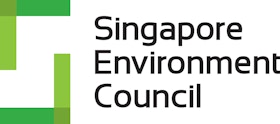The Singapore Environment Council (SEC) and Equinix, the world’s digital infrastructure company, have concluded a four-month Reverse Vending Machine (RVM) pilot project at Republic Polytechnic and Temasek Polytechnic to promote students’ recycling habits.
A total of 3,555 and 3,442 used beverage containers were collected at Temasek Polytechnic and Republic Polytechnic respectively, with a contribution of $10,800 made towards benefitting underprivileged students at the two polytechnics.
The pilot demonstrated the potential and capability of public-private-people partnerships to deliver green solutions with the ability to scale up to more educational institutions and food and beverage (F&B) establishments in retail environments.
RVMs are one way to encourage the domestic recycling of used beverage containers at source. Utilising the technology of the in-built camera to capture images of the container, the software identifies the type of container before sorting them into different storage bins with the collection data recorded for viewing by an online system. All containers are collected weekly by SembWaste and sent for recycling at Sembcorp’s material-recovery facility, avoiding incineration and landfilling.
Yee May Leong, Managing Director of Equinix South Asia, said, “As a Fortune 500 company with over 230 International Business ExchangeTM (IBX®) data centers globally, Equinix has a responsibility to connect and support local communities, and power the world in a sustainable manner.
Through sponsoring the RVM Polytechnic project, we are pleased to have contributed to the national recycling programme, whilst educating students and helping those in need along the way. We hope this meaningful project encourages everyone, especially the youths who are our leaders of tomorrow, to do more together to create a better future.”
The joint pilot project is indicative of Equinix’s efforts in catalysing collective action in the community for the betterment of society through utilising new technologies and innovations.
Jen Teo, Executive Director of SEC, said, “We are extremely heartened by the support of the schools and students for this project pilot. While COVID-19 has certainly presented challenges, the pilot has nevertheless allowed us to get a better sense of sentiment on the ground.
With the National Environment Agency (NEA) expected to roll out its Deposit Refund Scheme by 2022, the insights will help us refine how we engage not just the schools but the community as a whole. We believe that such an approach is critical as we work together with the government to drive Singapore towards a zero-waste nation.”
Over 467 million plastic drink bottles are used in Singapore each year, equivalent to the size of 94 Olympic-sized swimming pools. COVID-19 has aggravated plastic waste from takeaways and food deliveries. A 2020 study conducted by NUS Alumni found that Singapore households generated an extra 1,334 tonnes of plastic waste from takeaways and food deliveries during the country’s two-month circuit breaker in 2020.
And yet, according to the NEA’s 2020 Waste and Recycling Statistics, only 4 per cent of plastics were recycled last year. This pales in comparison with 11 per cent for glass and 19 per cent for food waste and shows the vast scope for recycling plastics.
Alongside packaging waste, Singapore has designated e-waste and food waste as priority streams under its Extended Producer Responsibility (EPR) framework. The first phase of the EPR will be the Deposit Refund Scheme (DRS). To be rolled out by 2022, this is a nation-wide system to take back and recycle used beverage containers. DRS aims to aggregate the collection of post-consumer plastic waste and ensure a steady supply of feedstock for recycling, ultimately closing the plastic-waste loop. As envisaged in the Singapore Green Plan 2030, DRS will bolster national efforts to reduce waste per capita sent to landfills by 30 per cent by 2030.
Ms Teo added, “We strongly believe that collaboration between the private, public and people sectors is the way forward to make a deeper impact on recycling beverage container waste and contribute to our nation’s zero-waste goals. We hope that as more forward-thinking companies and organisations step forward to partner us, we can collectively accelerate efforts to make recycling convenient to consumers through the Reverse Vending Machine and other recycling touchpoints.”
ABOUT THE SINGAPORE ENVIRONMENT COUNCIL
The environmental sustainability advisory for businesses and future business leaders, SEC partners companies in their sustainability journeys through its globally recognised environmental certification programme under the Global Ecolabelling Network (GEN).
In line with the national targets outlined in the SG Green Plan 2030, SEC’s public arm focuses on raising public awareness on sustainability issues and fosters capability and capacity building through Public Private People Partnerships (4Ps).
As a not-for-profit, non-governmental organisation (NGO), SEC is approved under the Institution of Public Character (IPC) which extends tax exemption to donors.
For details, please visit https://www.sec.org.sg.
Publish your content with EB Publishing
It's about who you reach. Get your news, events, jobs and thought leadership seen by those who matter to you.









